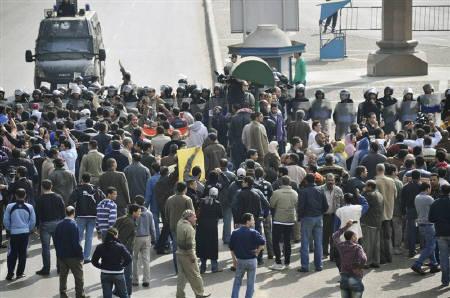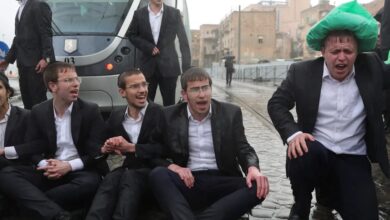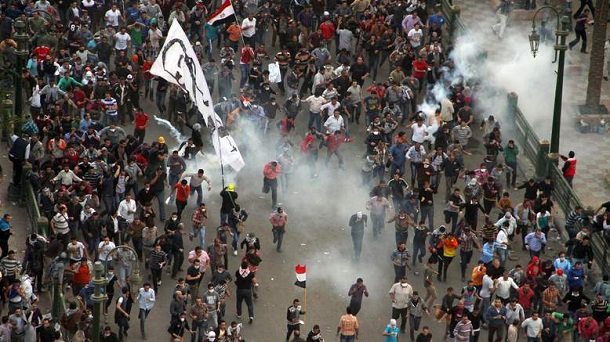
A teenager has reportedly been killed outside an office of Egypt’s ruling Muslim Brotherhood, as President Mohamed Morsi prepares to meet senior judges to try to ease violent clashes.
The violence at the Freedom and Justice Party headquarters in the Nile Delta town of Damanhour, south of Alexandria, also left dozens injured.
“Brotherhood member, Islam Fathy Masoud, 15, was killed and 60 were injured after thugs attacked the Muslim Brotherhood’s headquarters in Damanhour in the total absence of police forces,” the party’s website said.
It came amid widespread anger in Egypt over President Morsi’s decision to award himself sweeping new powers.
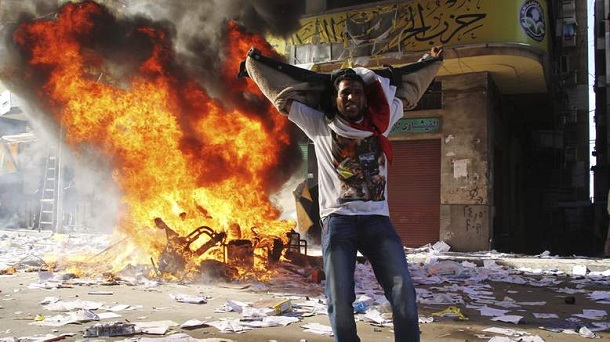
Mr Morsi had sought to calm the anger over the decree which effectively protects the president’s decisions from any legal challenge.
“The presidency reiterates the temporary nature of the said measures, which are not meant to concentrate power, but … to devolve it to a democratically elected parliament … as well as preserving the impartiality of the judiciary and to avoid politicising it,” a statement from the president’s office said.
The statement also reaffirmed that the new powers – which Mr Morsi says were taken to protect Egypt’s revolution from followers of former president Hosni Mubarak – would only apply until a new constitution is adopted.
Mr Morsi will meet senior members of the judiciary, which has changed little since the Mubarak era, after they called the move an “unprecedented attack” on their authority.
The country’s highest judicial authority has hinted at compromise to avert a further escalation, although Mr Morsi’s opponents want nothing less than the complete cancellation of the decree they see as a danger to democracy.
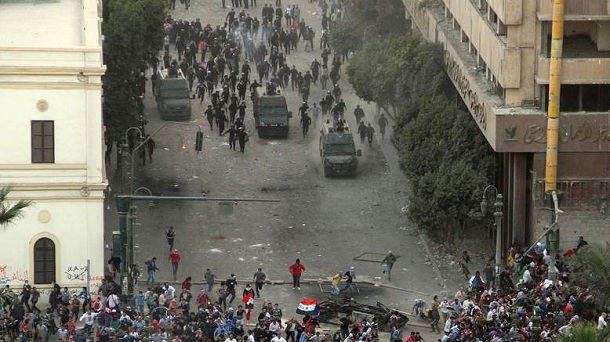
The Supreme Judicial Council said Mr Morsi’s decree should apply only to “sovereign matters”, suggesting it did not reject the declaration outright, and called on judges and prosecutors, some of whom have begun a strike, to return to work.
Angry protesters have clashed with police for a fourth consecutive day in central Cairo, as Egypt’s stock market reacted with a nearly 10% fall.
More than 500 people are believed to have been injured in violent protests since the decree was announced on Thursday.
Activists have been staging a sit-in at Cairo’s Tahrir Square – the symbolic hub of the popular uprising that forced Mubarak from power – and a mass protest has been called for Tuesday. The Muslim Brotherhood is planning a counter demonstration.
[adrotate banner=”46″]
